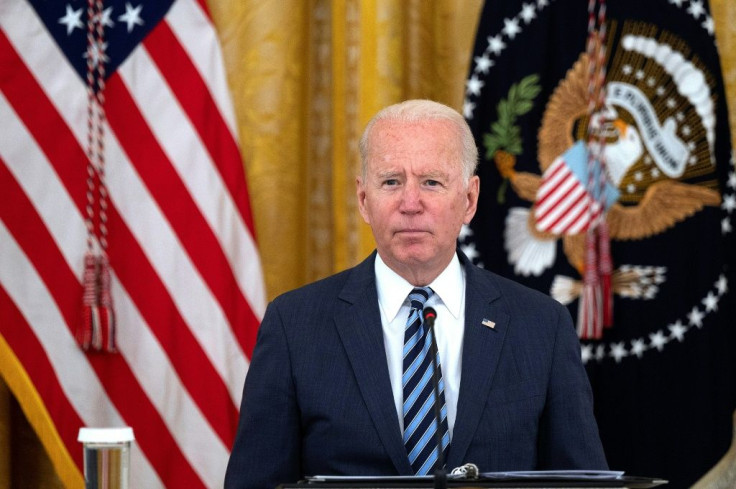Biden Looks To Reopen Jerusalem Consulate Over Bennett's Objections

President Joe Biden has insisted that his administration will continue to seek the reopening of a U.S. consulate in Jerusalem, Axios reported on Wednesday. This move goes against the objections of Israel and its Prime Minister Naftali Bennett, who is worried about the impact the consulate’s reopening would have on his fragile coalition.
Biden met with Bennett for the first time in August where assured his Israeli counterpart that the United States had other options available to it if negotiations over the Iran nuclear deal fell through. The Trump administration had abandoned the accord with the support of Bennett’s predecessor Benjamin Netanyahu, who now leads the Israeli opposition. Like Netanyahu, Bennett is opposed to the nuclear deal.
During their meeting at the White House, Biden also broached the sensitive topic of restoring a U.S. consulate in Jerusalem that was shuttered by former President Donald Trump in 2019. The consulate, originally located in East Jerusalem, served as a conduit for American diplomats to interact with the Palestinian Authority. Biden has stuck to the Trump administration's decision to recognize Jerusalem as Israel's capital and to keep the U.S. embassy there, but he has worked to restore aid to the Palestinian Authority that was cut under his predecessor.
Biden had been widely expected to reopen the consulate and he insisted to Bennett that he would stick to his position. He also stressed that a commitment was made to reopen it by Secretary of State Antony Blinken, who said in May that the administration would follow through on that promise.
For his part, Bennett expressed his disagreement with the policy. Rather than fight the U.S. president over his desire, the prime minister offered to open policy discussions on the matter between officials on both sides.
Reopening the Palestinian consulate could be politically perilous for Bennett, who presides over a fragile coalition of right and left-leaning parties that came together to end Netanyahu’s premiership. Members of his government are not keen to agree to a move they see as infringing on Israeli sovereignty. Any consulate reopening would require Israeli approval beforehand and for Bennett in his desire to keep his coalition together while repairing relations with the U.S., even a single resignation would lead it to collapse.
The Biden administration appears to be cognizant of Bennett’s domestic situation. Since Bennett’s arrival into office, the White House has embraced him as a welcome partner over the more bellicose Netanyahu. As a goodwill gesture, Biden pushed back the consulate’s reopening to November when the Israeli government is expected to push for approval of its first budget on Nov. 4.
U.S. officials speaking to Axios suggest that the budget vote is expected to make or break Bennett’s grip on the prime minister’s office. They predicted that if successful, Bennett can remain in office until he passes the reins to his foreign minister Yair Lapid in accordance with the rotation agreement they brokered to oust Netanyahu. If the vote fails, the coalition risks falling apart.





















